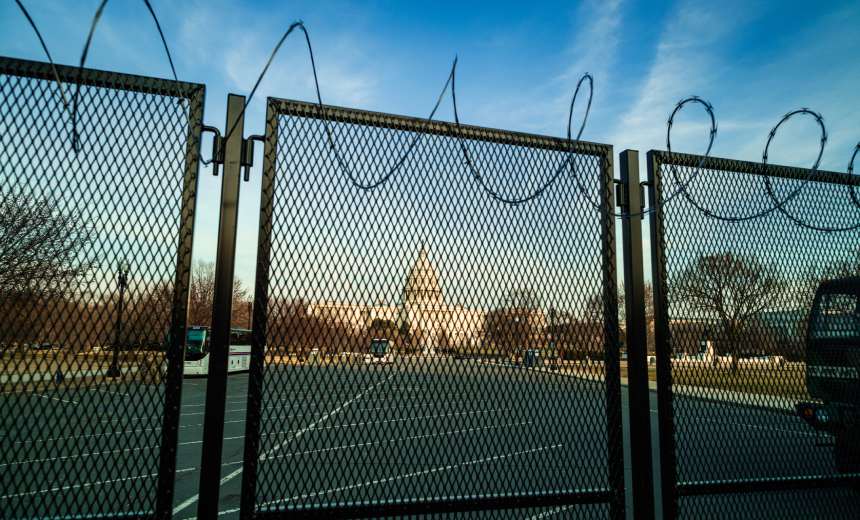Cyberwarfare / Nation-State Attacks
,
Fraud Management & Cybercrime
,
Government
DHS Says Adversaries May Stoke Voter Fraud Fears Long After Election Day

Foreign adversaries and domestic violent extremists are ramping up attacks on the 2024 U.S. election cycle and will “almost certainly” keep attacking the integrity of the process after election day in November – and into 2025, the Homeland Security Department warned in a new report.
See Also: New OnDemand | People-Centric Security for the Public Sector
The terrorism threat level will remain high in 2025 in part due to “violent extremist responses to domestic sociopolitical developments and the 2024 election cycle,” according to DHS annual threat assessment report published Wednesday. The report said DHS has significant concerns about the likelihood of violence motivated by the election and other domestic and global events, including the Israel-Hamas war, and the agency says adversaries are using those issues to further sow discord in the U.S.
“We are beginning to see Russia target specific voter demographics, promote divisive narratives and denigrate specific politicians,” the report says, adding that U.S. election infrastructure including voter registration databases “could be used to facilitate follow-on foreign malign influence campaigns or other illicit activity.”
State officials and election security experts told Congress in September that federal funding for safeguarding election IT infrastructure was falling short amid heightened cyberthreats in the final weeks ahead of the vote on Nov. 5 (see: Election Experts Still Demanding More Federal Cyber Support). The Justice Department also indicted two Russian RT employees in September for secretly funding U.S. podcasters with pro-Kremlin content using a Tennessee front company, Tenet Media. The Biden administration has pledged to continue efforts to combat Russian interference in the November election.
DHS says there is no evidenced that foreign adversaries have ever successfully disrupted the ability to tally and transmit election results, but warned that domestic violent extremists “will pose the most significant physical threat to government officials, voters and elections-related personnel and infrastructure.” Some violent extremists could “react violently should their preferred candidate lose” and “could seek to exploit possible civil unrest if there are perceptions of election fraud,” DHS said.
Microsoft recently found that Russia-linked cyber actors were supporting former President Donald Trump’s campaign by launching misinformation campaigns and promoting fake videos targeting Vice President Kamala Harris. Those videos have gained millions of impressions online, according to the tech giant’s threat analysis center, attributing the interference efforts in part to a Russian troll farm tracked as Storm-1516 (see: Microsoft: Russian Cyber Proxies Targeting Harris Campaign).
Russia is far from the only foreign adversary meddling in the U.S. electoral process. The DHS report also says Iran has used “social engineering and other efforts” to gain access to individuals associated with both parties’ presidential campaigns. The U.S. government indicted and sanctioned several Iranian hackers in September for allegedly stealing information belonging to Trump’s presidential campaign, including three people linked to Iran’s Islamic Revolutionary Guard Corps (see: Iranian Hackers Indicted for Cyberattacks on Trump Campaign).
DHS and the Cybersecurity and Infrastructure Security Agency did not immediately respond to requests for comment by Information Security Media Group.
